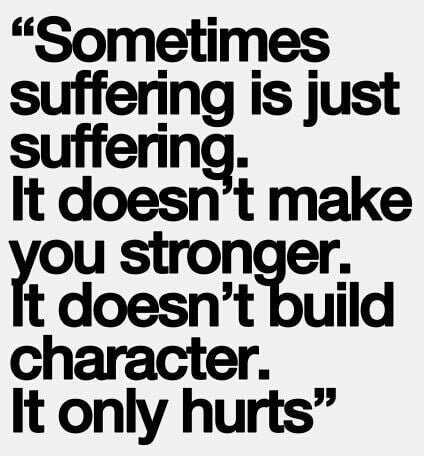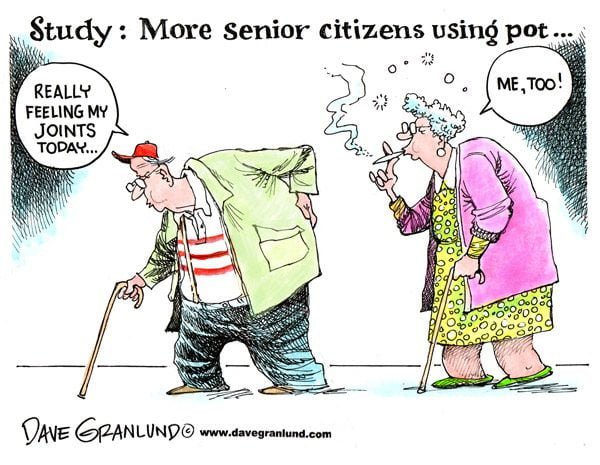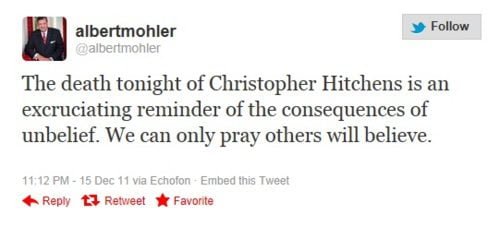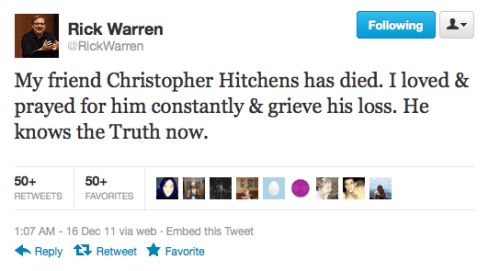
This post is written from an Evangelical perspective.
If you grew up in the Evangelical church, you’ve likely heard quite a few sermons on texts such as:
My brethren, count it all joy when ye fall into divers temptations; knowing this, that the trying of your faith worketh patience. But let patience have her perfect work, that ye may be perfect and entire, wanting nothing. James 1:2-4
Blessed is the man that endureth temptation: for when he is tried, he shall receive the crown of life, which the Lord hath promised to them that love him. James 1:12
Wherein ye greatly rejoice, though now for a season, if need be, ye are in heaviness through manifold temptations: that the trial of your faith, being much more precious than of gold that perisheth, though it be tried with fire, might be found unto praise and honour and glory at the appearing of Jesus Christ: I Peter 1:6,7
Beloved, think it not strange concerning the fiery trial which is to try you, as though some strange thing happened unto you: but rejoice, inasmuch as ye are partakers of Christ’s sufferings; that, when his glory shall be revealed, ye may be glad also with exceeding joy. 1 Peter 4:12,13
Thou therefore endure hardness, as a good soldier of Jesus Christ. 2 Timothy 2:3
And ye shall be hated of all men for my name’s sake: but he that endureth to the end shall be saved. Matthew 10:22
Behold, we count them happy which endure. Ye have heard of the patience of Job, and have seen the end of the Lord; that the Lord is very pitiful, and of tender mercy. James 5:11
…for I have learned, in whatsoever state I am, therewith to be content Philippians 4:11
These verses, and others, are used to teach that no matter what happens to Christians they must endure and stay faithful. God sends trials, temptations, and adversity to punish Christians for sin, teach them a lesson, or increase their faith. The Bible says in Hebrews 12:5,6:
My son, despise not thou the chastening of the Lord, nor faint when thou art rebuked of him: for whom the Lord loveth he chasteneth…
No matter what happens in the lives of Christians, God loves them, has a plan for their life, and promises to never leave or forsake them. No matter how severe the trial, God will give them strength, promising to never give them more than they can bear.
If a person fails to endure, fails to bear the burden God has given them, then it is always their fault. They lack faith or are spiritually weak. Perhaps there is some secret sin in their life that is causing them to fail. Repent, trust God, and all will be well.
Couple this belief with the notion that Christians must patiently wait on God to do his perfect work in their lives, is it any surprise that many of them go through life facing onslaught after onslaught of pain, suffering, sickness, and loss. Hold on, Christian pastors tell their flock. Jesus is perfecting your lives. Don’t quit now. It is darkest just before the dawn. On and on the exhortations go, encouraging Christians to passively and piously endure whatever comes their way. (Please see Does Evangelicalism Encourage Weakness and Passivity?)
Over the years, I heard a few preachers say that the Christian church could use some persecution; that persecution makes Christians stronger. According to an article I read years ago in Christianity Today (no source but my memory), persecution has, in some instances, totally wiped out Christianity in some places in the world. Instead of passively enduring persecution, perhaps it would have been better for Christians to live to fight another day. The reason they don’t is that they have been taught that not passively enduring persecution means they aren’t true Christians. Jesus endured pain, suffering, and death on the cross, and the least that Christians can do for him is be willing to die for their faith. Jesus stood meekly before his accusers, allowing himself to be beaten and spat upon. Christians should be willing to do the same.
Most Christian sects believe God is sovereign. This means God is in control of everything. Both the Calvinist and the Arminian agree that God has a purpose and plan for everyone, that he is the first cause of everything. Since God is running the show, Christians must play the part of suffering saints. No matter what comes their way, Christians, because of what Jesus did for them, must hold on and endure. I told the congregations I pastored, if you feel like you are at the end of the rope, tie a knot and hold on.
But what happens when you don’t have the strength to tie the knot? What happens when you free fall and hit the ground with a splat? Is God to blame? Of course not. God is never to blame for anything bad happening in the lives of Christians. Only in Evangelicalism is bad renamed good. Let a woman miscarry, it’s for her good. Let a couple’s child die, it’s for their good. Let a tornado destroy a church, it’s for their good. Let a hurricane, earthquake, or tsunami maim and kill thousands of people, including Christians, it’s for their good. I suppose there will be a preacher somewhere that says, after an asteroid hit kills a billion people, that God meant it for good. Just remember, God is good all the time. All the time God is good. Praise the Lord, where are the body bags?
Evangelicals convince themselves that no matter the circumstance, God is always with them. He promised to never leave or forsake them, and he is a friend that sticks closer than a brother. They pray, pray, and pray, and God answers not, yet they still believe. Why? Because they have been taught that silence from God can be a means of testing and strengthening one’s faith. Again, God is ALWAYS exonerated.
Rarely do Christians think through the belief that God is sovereign, yet not responsible for the bad things that happen. If God is in control of everything, how is it possible for him to not be culpable for the bad things that happen? Using Evangelical voodoo to make bad appear good doesn’t change the fact that bad things happen. No amount of Good Gawd Whitewash® can cover the fact that there are bad things that happen that have no redemptive value. Christian children starving to death in Africa has no redemptive value. Neither does a child dying of cancer or a Christian family being smashed by a falling concrete barrier. Pray tell, what is redemptive about a plane crash that kills everyone on board? Everywhere I look I see needless suffering and death, yet according to Evangelicals, God means the suffering and death for good. Since he can’t do anything other than good, and he is the sovereign Lord of all, everything that happens is good. In any other setting, this kind of thinking would be considered lunacy.
One of the reasons my wife, Polly, and I deconverted was because we came to the conclusion that, out of the thousands and thousands of prayers we uttered, God never answered one of them. Yes, some of our prayers were answered, but we traced the answers back to human instrumentality. Out of all the prayers we prayed morning, noon, and night, those that had no human explanation could be counted on two or three fingers. Is this the best God can do? For some Christians, this is enough. They are the ones that praise God when a plane loaded with a hundred people crashes and there’s only one survivor. Isn’t God awesome? One person survived, praise Jesus! If a psychopath went to a shopping mall and killed ninety-nine people, yet saved a little baby, would anyone be praising the psychopath’s name? Of course not.
The beliefs taught from the verses I mentioned above often keep Christians from asking for help or expressing normal human emotion. I spent twenty-five years in the ministry, passively enduring everything “God” sent my way. For many years, we lived in abject poverty. Why? Because I believed God had called me to pastor full-time and operate a Christian school. I worked day and night, burning the candle at both ends, ultimately ruining my health. But even then, I told myself, better to burn out for God than rust out. Since the Apostle Paul spoke of early Christians enduring horrific trials and extreme poverty, I thought God was calling me to do the same. (Romans 8:31-39) If God wanted me to stuff a family of eight in a dilapidated 12×60 trailer, so be it. If God wanted me to drive $200 cars, my children to wear clothing from Goodwill or Odd Lots, and our family to do without the basic necessities of life, who was I to object? Look at all Jesus did for me. Look at how the early church suffered. Surely, I should be just as willing to forsake and endure all for Jesus.
Instead of suffering for Jesus, I should have told him thanks, but no thanks. I should have thought, I have a wife and six children to care for. I have the future to consider. Some day I will be retirement age and I need to start preparing for that now. Polly and the children deserve a better life. All of these things should have been at the forefront of my thinking, but they weren’t. Jesus and the church came first. I passively and resolutely followed God’s will for my life. Everything that happened was because God wanted it that way. Remember, God is good all the time. All the time God is good.
If atheism and humanism have taught me anything, they have taught me that I am responsible for what happens in my life. Most of the time, anyway. Things can and do happen that are beyond my control, but most of the time I am in control of my destiny. While I can’t undo the health problems I have, I can make the most of what life I do have. Sometimes, when I am overwhelmed and the chronic, unrelenting pain and suffering are winning, loving and kind people have extended a hand and said, let me lend you a hand. Since there is no help coming from God, each of us does what we can to deal with the bad things that come our way. And they will come. Live long enough and you’ll likely face severe trial and adversity. Life can be cruel and heartless. All we can do is hold on and hope tomorrow will be a better day. Most often it is, but not always. No matter how good a person we are, sometimes bad things happen to us. Live long enough and there will come a day when a doctor says, sorry, you have cancer/heart disease/kidney disease and it is going to kill you. It sucks, but even then, we have the power to face death with dignity.
How about you? How did the Bible verses mentioned above affect how you lived your life as a Christian? After you deconverted or left Evangelicalism, how did your approach to life change? Please share your thoughts in the comment section.
Note
Some Christians argue that the belief God won’t give you more than you can handle is a perversion of what the Bible teaches; that it actually says that God won’t give you more than HE can handle. However, this is nothing more than semantics. Since the Christian purportedly has God living inside of them and he is only a prayer away, God is always there. So, when the Christian is going through adversity that levels and incapacitates them, God is supposedly still right there with them. Otherwise, if a Christian is hit by a car, lying in the ditch with both legs and arms broken and their cellphone battery is dead, shouldn’t the Christian expect God to start handling things? Except, he never does. Let a Christian find themselves in the middle of the desert with no water and no hope of getting any, what will happen? This is definitely more than they can handle. Does God show up with a bottle of Evian? Of course not. They die a miserable, horrible death, waiting in vain for God to deliver them.
Bruce Gerencser, 68, lives in rural Northwest Ohio with his wife of 47 years. He and his wife have six grown children and sixteen grandchildren. Bruce pastored Evangelical churches for twenty-five years in Ohio, Texas, and Michigan. Bruce left the ministry in 2005, and in 2008 he left Christianity. Bruce is now a humanist and an atheist.
Your comments are welcome and appreciated. All first-time comments are moderated. Please read the commenting rules before commenting.
You can email Bruce via the Contact Form.














